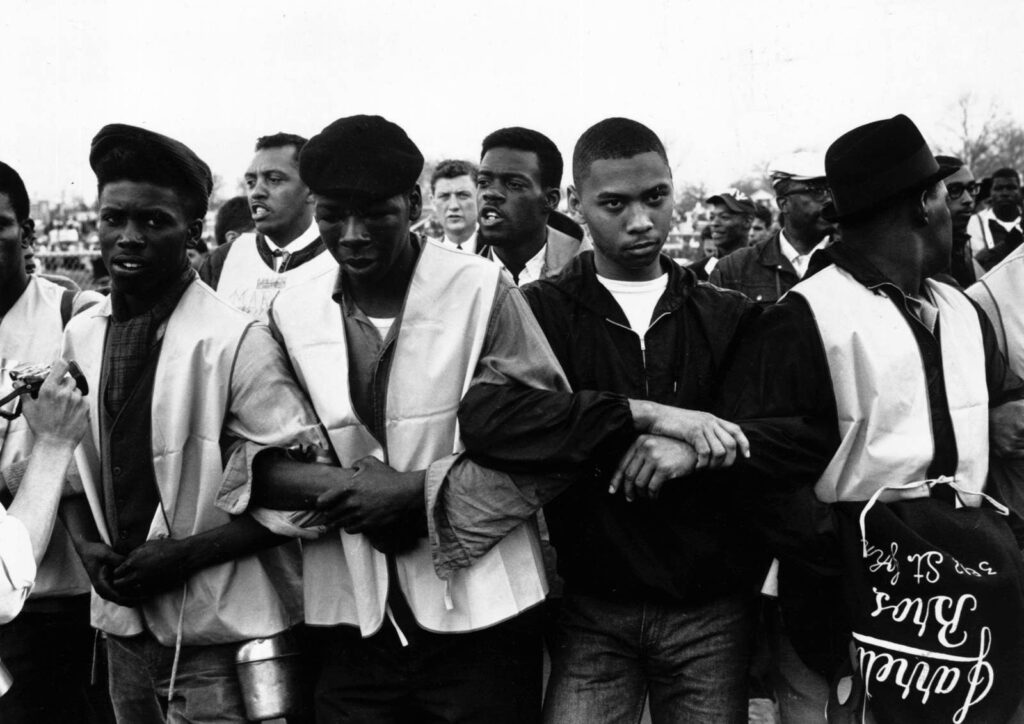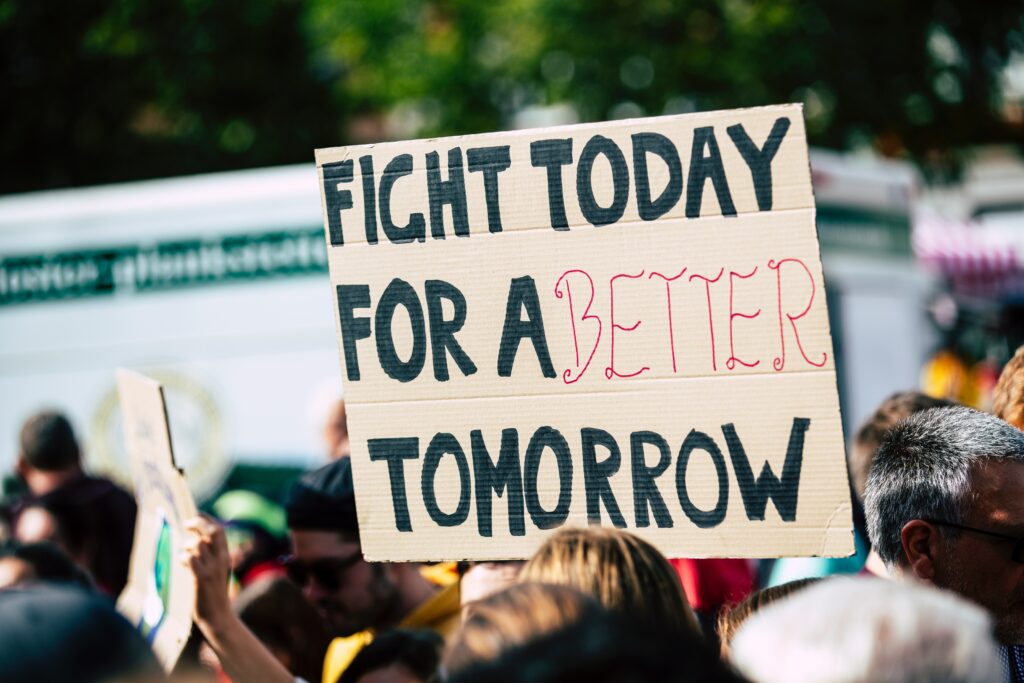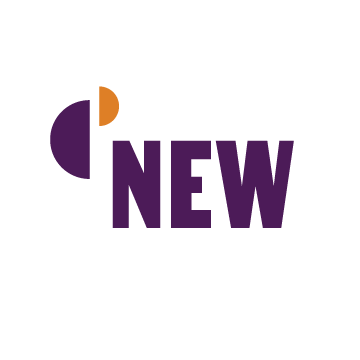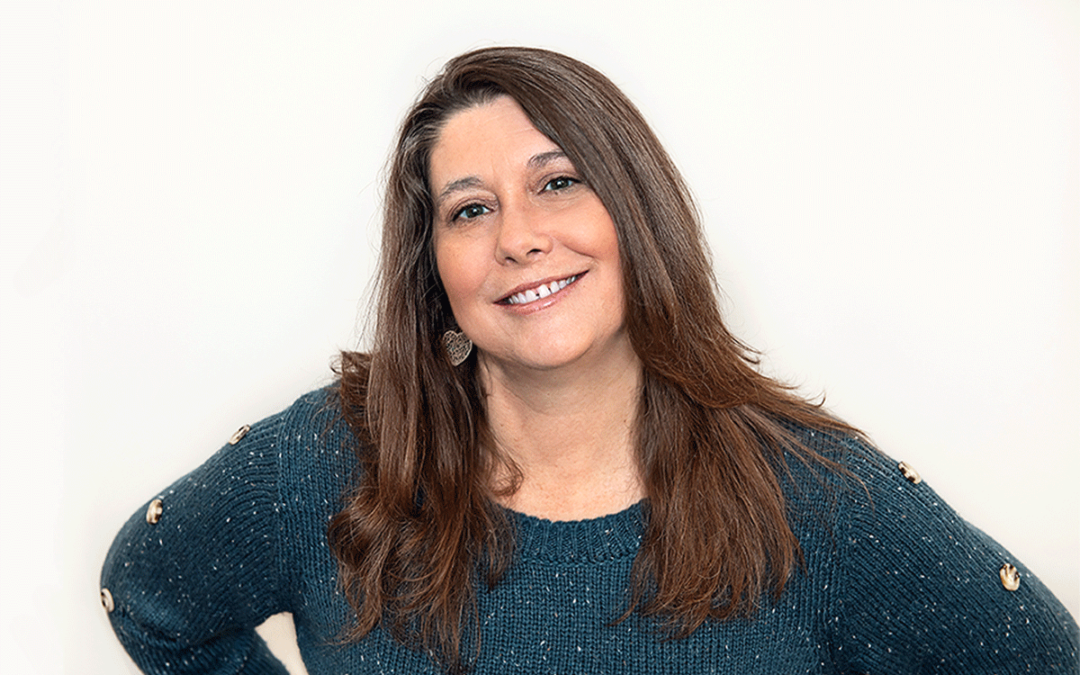On December 16, 1773 at Griffin’s Wharf in Boston people had had enough. They assembled in a protest that became one of the first major acts of rebellion in this country. A protest that sparked a revolution for independence. (Learn more: https://www.history.com/topics/american-revolution/boston-tea-party)
On the night of November 14, 1917, 33 women were violently beaten and tortured at Occoquan Workhouse in Lorton, Virginia. Their crime? Protesting in Washington D.C. for a women’s right to vote. (Learn more: https://www.history.com/news/night-terror-brutality-suffragists-19th-amendment)
On March 7, 1965, in Selma, Alabama, civil rights activists were attacked, beaten, and arrested. What began as a peaceful march ended in brutality. All because they wanted to talk to the Governor. (Learn more: https://www.history.com/news/selma-bloody-sunday-attack-civil-rights-movement)

Making change in the world requires people to both take action and be willing to sacrifice. These are only a few examples of many instances. Creating a better world doesn’t happen by accident. It takes years of long work, by generation after generation, moving the needle towards the promise of something wonderful. It takes everyday people willing to stand up and say we want better. We deserve better.
But these moments in history are also specific to a long journey. One in which people continue rising up to say, “I have a voice. And it matters.” That I deserve to be able to take part in the decisions that affect my life and the lives of those I love. That I should not be excluded, but rather welcomed at the table where we come together to create our world and laws.
This, for me, is the fundamental principle that makes change possible. Bringing all the voices to the table for fair and impartial elections. Creating progress through participation is my passion.
But opening up the table will not work unless people are willing and able to come to it.
For the democratic process to function, it’s crucial that everyone has access to participate. Restrictions – either overt or subtle – disenfranchise people from voting. They create an inequitable system, where a small group of privileged people are making decisions for everyone. Civic engagement requires that all have access to participate, regardless of their circumstances. This creates a stronger democracy and a more equitable world.

Civic engagement also demands civic education for the people. It demands unbiased and factual information to all people.
To provide access to voting, we need to recognize the barriers that exist. And to understand they impact communities. Generally, it is low-income and communities of color that are the most impacted. Often, these communities are left with fewer polling places or those that are difficult to access. This can lead to long lines at the polls, some lasting hours. Barriers to access can include work, lack of childcare, disability, information, and transportation.
Beyond voting, it’s essential to create space for people to volunteer. This means creating conditions where people are available to work the polls. It also means expanding the number of polling places. Many can also participate by providing transportation and childcare to those who need to get to the polls. Engagement can also include registering people to vote or sharing helpful information.
It’s also important to recognize that local and state elections are as important as national elections, if not more so. Decisions made at these levels impact our communities’ everyday lives. Sadly, participation in these elections is often low. Which means an even smaller group making decisions that impact people’s lives. Encouraging civic engagement at all levels leads to stronger, more equitable and inclusive communities.
History reminds us that it takes all of us participating to make progress. History reminds us that it often requires sacrifice. History teaches us that progress never comes from the top down. It always comes from the ground up.
My new year’s wish is to see all of us on the ground rise up. Together, we can move that needle further down the road.



